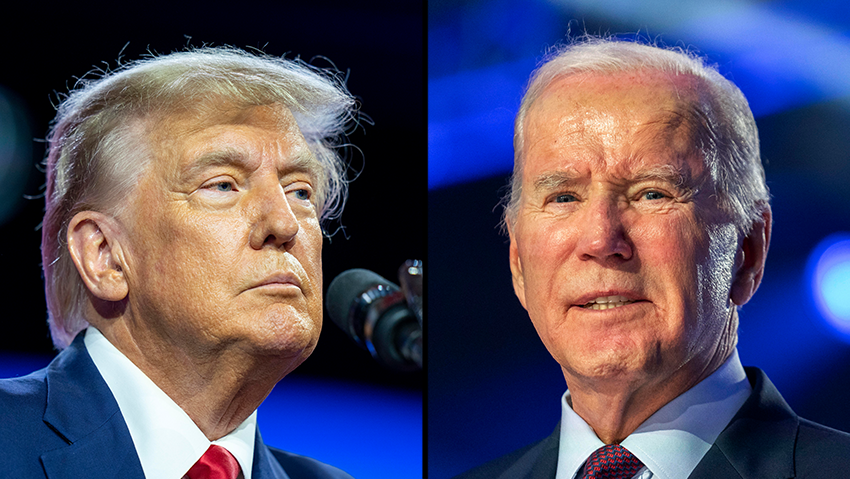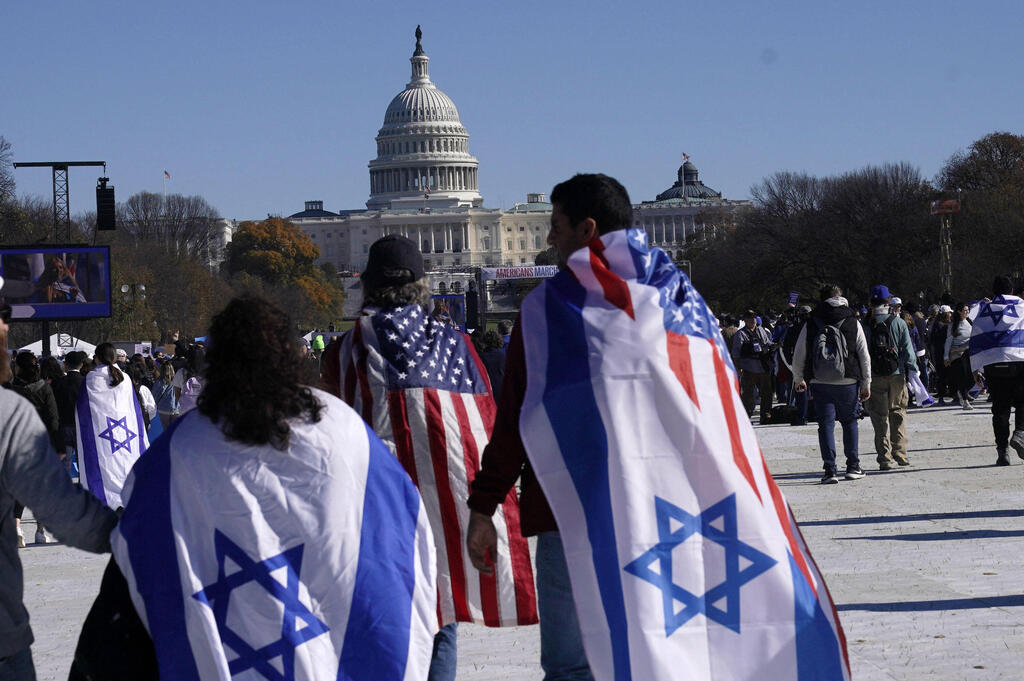A recent survey conducted by the Jewish People Policy Institute (JPPI) has shed light on the perspectives of American Jews regarding the ongoing conflict in Gaza. The survey, which has been tracking opinions since the conflict began, reveals a complex landscape of sentiment among this demographic.
Findings indicate strong approval, with 83% of American Jews considering Israel's actions in Gaza to be acceptable. However, there is a prevailing sentiment that the support from the U.S. for Israel is not strong enough. This sentiment is particularly pronounced given the backdrop of increasing protests across U.S. college campuses, which have been marked by stark expressions of antisemitism and a notable rise in anti-Israel sentiments.
The survey also highlights a political divide.: While 63% of American Jews have expressed their intention to vote for Joe Biden in the upcoming presidential election, only 17% are leaning toward Donald Trump, with the remainder undecided. This political split is mirrored in their views on U.S. support for Israel, with a significant discrepancy between liberal and conservative Jews. Most liberal Jews feel the level of U.S. support is appropriate, whereas the majority of conservative Jews believe it falls short.
Amid political and social tensions, the survey respondents have identified IDF spokesperson Rear Admiral Daniel Hagari and President Joe Biden as the most trustworthy sources of information about the war. This trust in specific figures highlights the search for reliable narratives within a community feeling increasingly vulnerable to discrimination – a sentiment that has intensified since the war began. According to the survey, a vast majority of American Jews now feel more discriminated against than other groups, including Muslims, a concern that spans across age groups, political affiliations and religious orientations.
Police go inside Columbia University
This data not only provides insight into the current state of American Jewish opinion but also underscores the broader implications of international conflicts on domestic perceptions and attitudes. As the situation evolves, the voices of American Jews will undoubtedly continue to play a critical role in shaping the discourse around U.S. policies and international relations.
The survey reveals a significant division among American Jews over the origins of the current tensions between Israel and the U.S. Liberal Jews generally point to the policies of the Israeli government, whereas those aligned with the center and right are more likely to hold the Biden administration responsible. Interestingly, among those Jews planning to vote for Biden, 46% attribute the blame to Israel, yet 34% see the responsibility as equally split between Washington and Jerusalem. On the other hand, Jews who support Trump overwhelmingly fault the Biden administration, with 95% holding it responsible and a mere 3% seeing it as a shared blame.
In terms of trusted information sources about the conflict, President Joe Biden and the IDF spokesperson are viewed as the most credible by American Jews. Biden is particularly favored by liberal Jews, the IDF spokesperson by those in the center and right, and Benjamin Netanyahu by conservative Jews. The American media, in contrast, is seen as less reliable on this issue. The survey underscores significant disparities in trust across different political alignments.
Looking ahead to the U.S. presidential election, expectations are that 63% of Jewish voters will choose Joe Biden, while 17% will opt for Donald Trump. About 10% are considering a different candidate or abstaining from voting, and 11% remain undecided. These figures are in line with a November 2023 Jewish Electorate Institute survey, which also showed a potential decline in Trump's support among Jewish voters in the U.S.
2 View gallery


Both Biden and Trump are after the Jewish vote
(Photo: Alex Brandon/AP, Stephanie Scarbrough/AP)
Professor Yedidia Stern, president of the Jewish People Policy Institute, commented on the broader implications of these findings. "American Jews, representing the strongest Jewish diaspora community in history, are enduring a challenging time. This is reflected in the survey, which indicates they are feeling increasingly discriminated against. As we approach Holocaust Remembrance Day, it's evident that the label 'Jewish' still provokes deep-seated animosity in the U.S."
The survey, which involved 700 Jewish participants in the U.S., does not provide a comprehensive representation of all American Jews but does offer insights into the trends and distinct perspectives across various segments of the community based on religious affiliation, political inclination, proximity to Israel, and connection to Judaism.





